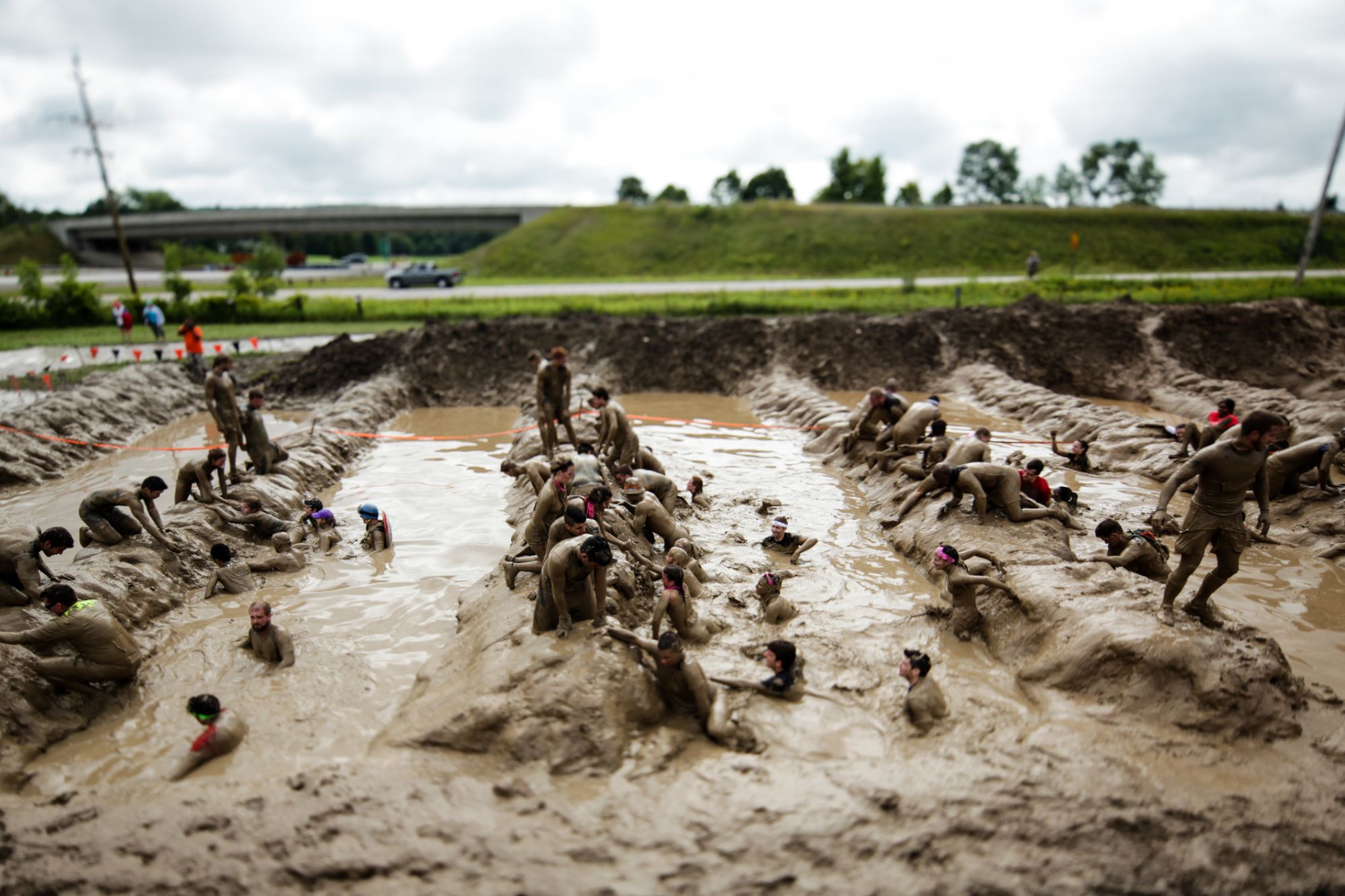5 New Approaches to Team Building Activities That Are Healthy and Actually Fun! Team-building wellness events create bonds, boost morale and help everyone lose weight in the process!
By Elisette Carlson Edited by Dan Bova
Opinions expressed by Entrepreneur contributors are their own.

Today, the terms "wellness" and "#self-care" get tossed around as commonly as cold brew coffee on a summer morning. But while an overall corporate wellness program can be quite complex (it's an $8 billion industry that has mixed reviews), there are some simple steps you can take to throw a company wellness event that drives a culture of change, fosters team-building and inspires good habits that could lead to more engaged and productive employees.
Related: 6 Steps to Build a Strong Team
Be it a company 5K, an obstacle race event or a sprint triathlon, below are five important factors for putting on a successful event for your company that boosts energy and brings people together.
1. Establish a clear goal for the wellness event
Arch Fuston, a personal leadership coach, speaker, and corporate well-doing consultant who founded the ACTIVEx employee engagement program over 12 years ago — a program he initially developed by using morning, afternoon and evening workouts as a tactic for creating meaningful connections — leads with, "What do you want your participants to feel throughout this event or any experience associated with the event? Is it a competition? Or esprit-de-corps?"
Fuston explains how a wellness event is a wonderful opportunity (and strategy!) for building social connection across a diverse audience within an organization. Whatever the tactic, be it a 5K or a hiking and yoga excursion, the experience of being involved is of most importance.
Be clear on your intention for the goal and if the goal is to inspire more active lifestyles through teamwork, recognize how you promote and organize the event to meet these goals. For example, anchoring a cause to the event can create more opportunity for people to get involved. "Participation now expands well beyond running, climbing over walls, or wearing lycra in front of your co-friends. There's fundraising, volunteering, volun-cheering, and leveraging skillsets and personal passions to get more people actively involved," Fuston explains. "With a goal to get a group of people moving, partnering with a charity organization that does the same thing for an underserved audience can add a ton of purpose to the event." The goal is making a connection, and if organizations can help drive this connection via healthier habits, it's a strong step forward.
Related: Team-Building Tips: 8 Ways to Make Sure Every Employee Feels Valued
2. Be a good captain
A good captain or company leader for a wellness event cannot simply send out a generic email about the upcoming company 5K, inviting employees to train with the downloadable training plan and participate. Rather, a good captain embraces teamwork. For example, the organization's CEO could send out a personal email to everyone about the 5K and lead with, "I'm committed to racing this, and here's why, and to it kick-off, I will be running 2 miles tomorrow morning at 730am starting from the front lobby. You are welcome to join me, and rest assured it will be the most motivating way to kick-start the day!" The captain could then invite a guest running coach to lead stretching or offer healthy breakfast snacks post-run. My personal experience of this draws from training for a company event back when I worked for Reebok. At the time, the head of Sports Marketing invited me to run with him at lunch, and I was terrified, yet excited! It ended up being a terrific run and what's more, I developed a friendship with him that still stands today, 18 years after than very run. So while "sweatworking" is great for motivation, it's also great for relationship building. But this captaining process does not stop at the first email. The leader should follow through and send out routine email updates of workouts, progress, photos from group runs and especially give shout-outs to particular team members throughout these communications.
3. Provide proper motivation
Let's all agree on one thing: Nobody wants another free event t-shirt, correct? On the same note, the free nominal gift card for signing up isn't going to get the hearts and minds of your team on board. You'd be surprised to learn that telling people that they will be healthier and offering them a challenge is motivation enough. Health and "challenges" as they stand are brilliant motivators if you have the right people on your team; as is anything that truly involves fun and prioritizes togetherness. A wellness event can be less about the finish line and more about getting people to the start line; literally and metaphorically.
As we juggle online and offline worlds, we tend to move at fast paces and feel overloaded with work. It's easy to forget about fun, laughter, endorphins and coming together. A wellness event is a perfect place to engage a network of champions through inspiration, goal setting and accomplishing health goals together. Bottom line: Rewards are extrinsic motivations that encourage participation for the sole intention of receiving the reward — not the experience.
Related: 3 Team-Building Secrets of Successful Small-Business Owners
If you really want to give something out, keep it in the spirit of your goal. Instead of pizza and ice cream party, how about a couple of Fridays when everyone can leave at noon, or a flex day when employees are invited to work from home if they participate in the event. If this disrupts the company schedule too much, offer free massages or gift certificates to health and fitness-oriented apparel companies, fitness equipment or boutique gyms, or even restaurants and juice bars as prizes. The most important thing is to offer rewards that truly make your team feel appreciated and support a healthy and active lifestyle.
4. Prioritize teamwork
Employees want to feel appreciated and like integral parts of their team. Winning, success and accomplishing goals tend to happen who you use everyone's best gift to attain a common goal, and each individual feels like they contributed. So while one person might be better at coding while another is a better designer, use those strengths as you prep for a wellness event. Who can lead the yoga? Who can organize the group runs? Who can be the motivator? This is also a great opportunity for leaders and employees to get to know themselves as people outside of their normal work roles. A great friend and past client of mine, Alden Mills, former Navy SEAL and author of Unstoppable Teams, explains this brilliantly with his swim buddy system technique of pairing an experienced person with an inexperienced person for the assigned mission. Unlikely pairings present amazing opportunities for learning and understanding different perspectives.
5. Don't make it a "one and done" event
While these tips should help companies create a more successful wellness event, keep in mind that health and wellness should be prioritized year-round. A focus to maintain good health and fitness is everyone's business, and by setting the tone with teamwork, personalization and motivation, you're likely to build a happier, more loyal and productive work culture. Celebrate the achievements together and use the event to encourage continued behaviors of camaraderie, togetherness and human connection.










